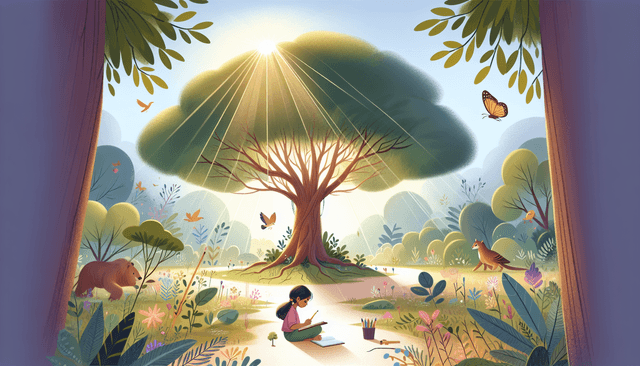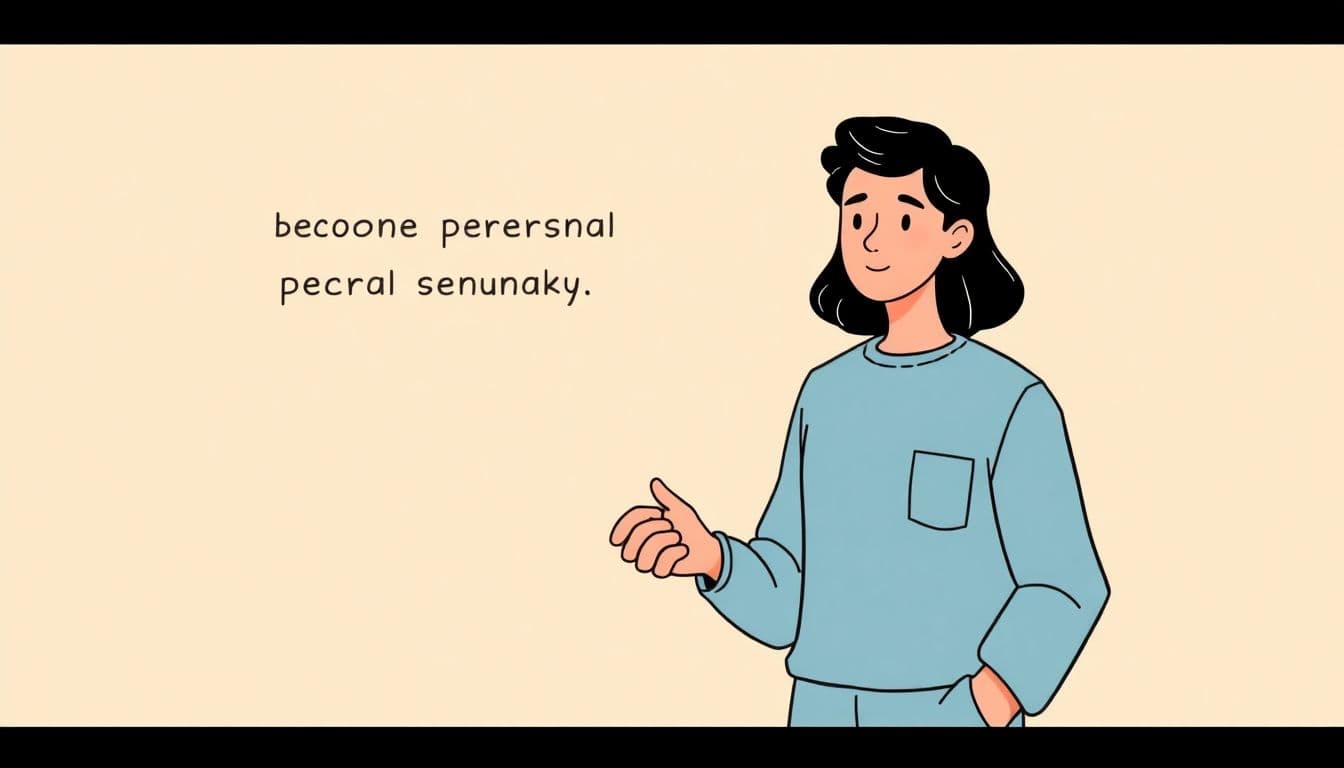Table of Contents
Writing can be tough, especially when you’re staring at a blank page wondering what to say. It’s easy to feel stuck or overwhelmed by all the possibilities out there. But don’t worry; you’re totally not alone in feeling this way!
If you hang in there and keep reading, you’ll discover a treasure trove of fun topics that can spark your imagination. These ideas are sure to get your creative juices flowing, turning that empty page into an exciting story or a thoughtful piece.
From adventurous tales with pets to exploring your dream job, there’s something for everyone! Get ready to dive into a world of writing prompts that will help you share your thoughts and experiences in your unique style.
Key Takeaways
- Writing can be easier with fun prompts that help kids get started creatively.
- Story ideas like adventures with pets or creating fantasy worlds can ignite imagination.
- Encourage kids to reflect on their dreams and write about vacations, holidays, or perfect days.
- Writing about nature fosters appreciation and awareness of environmental protection.
- Exploring friendships and family relationships helps kids understand their emotions better.
- Future aspirations encourage children to think about careers, world change, and their potential impact.

Fun Story Ideas
When it comes to writing, kids are often brimming with creativity and imagination, but sometimes they just need a little nudge to get started. Fun story ideas can ignite their passion for storytelling. Here are some engaging prompts that can help them kick off their writing adventure.
Adventures with Pets
Pets aren’t just cute companions; they can also be the stars of thrilling adventures! Encourage kids to think about what exciting escapades their furry friends might go on. What if the family dog discovered a hidden treasure map? Or maybe a cat got lost in a magical forest! These stories can be filled with action, friendship, and the unique personalities of their pets.
To make it more exciting, kids can ask themselves questions like: What challenges will they face? How will the pet solve problems and save the day? Using their own pet’s traits can add a fun twist and make the story more relatable.
Magic and Fantasy Worlds
Magic can take us to unbelievable places, and every child has the power to create their own unique fantasy world. Think of wizards, fairies, or even dragons! Encourage kids to imagine where these characters live. Is it a bright, colorful forest or a dark, mysterious cave?
Ask them to sketch out ideas about special powers, magical creatures, and interesting sidekicks. They could write about how they would use their magic to help others or solve problems in their fantastical universe. Don’t forget the magic spells and whimsical names for places—those details can spark even more imagination!
Time Travel Adventures
What if you had a time machine? The past and future are filled with endless possibilities for storytelling. Kids can write about jumping back to witness dinosaurs or flying to a future where robots rule the world. They might even meet historical figures or learn lessons from the past.
Have them brainstorm what time period they would visit and create a story that explores the challenges of adjusting to that era. Questions like, “What would they share from their time?” or “How would they change history?” can help them think critically and creatively.
Superheroes in Everyday Life
Superheroes don’t always have to wear capes and masks. Perhaps kids can write about a hero in their own lives—like a parent, teacher, or even a friend—who demonstrates courage and kindness in everyday situations. They could create a character who has extraordinary powers but chooses to help with mundane tasks or fights everyday problems.
To deepen the story, they can elaborate on challenges faced in their “ordinary” challenges. What small acts of bravery did they show? You might also include interesting sidekick characters to support the main superhero. This can help highlight the idea that anyone can be a hero, even without superpowers!
Creative Writing Prompts
Sometimes, kids just need a little push to get the words flowing, and creative writing prompts can work wonders. Here’s a list of tips and prompts that can inspire them to come up with unique stories and engage their imagination!
Write About a Dream Vacation
Who doesn’t love a vacation? Kids can unleash their creativity by writing about their dream vacation destination. Where would they go if money were no object? Would they travel to the beach, a snowy mountain, or even a magical land?
Encourage them to describe not just the place, but also the experiences they’ll have—delicious food, exciting activities, and maybe even new friends they would meet. Asking questions like, “What makes this vacation special?” can get them thinking creatively!
Invent a New Holiday
Holidays are about fun and celebration! Challenge kids to invent an entirely new holiday. What is this holiday celebrating? Is it something silly, like “National Ice Cream Day”? Or perhaps it’s a meaningful day to appreciate friendship or nature?
They can create traditions, special foods, and even fun activities associated with this holiday. This not only helps them think creatively about why traditions exist but also allows them to explore what it means to celebrate together!
Describe Your Perfect Day
Everyone has a perfect day in mind. Kids can write about what their ideal day would look like from start to finish. What would they do first? Would it involve waking up late, enjoying breakfast in bed, or going on an adventure?
Encourage them to include every detail, from what they would wear to who they would spend it with. This exercise can help them reflect on their likes and dreams while painting a vivid picture for the reader!
Write a Letter to Your Future Self
Letters can be powerful tools for reflection and aspirations. Ask kids to write a letter to their future self. They can share their current dreams, what they hope to achieve, and even what advice they would give themselves.
This activity encourages self-reflection and can help them think about their goals and aspirations. Though they won’t receive an immediate response, it can be a fun exercise that promotes personal growth and understanding! Imagine how excited they would be to read that letter years later!

Nature and Environment
Writing about nature and the environment not only helps kids appreciate the world around them but also nurtures their creativity.
Write About Your Favorite Animal
Every child has a favorite animal.
Encourage kids to write about what makes that animal special to them.
They can explore interesting facts about the animal, such as its habitat, diet, and behavior.
Adding a personal touch, like a story of an encounter or a trip to the zoo, can make it more engaging.
For example, if they love dolphins, they might narrate a day spent watching them at an aquarium, including fun details about their playful nature.
The Importance of Trees
Trees are not just beautiful; they play a vital role in our environment.
Kids can write essays or stories about why trees are essential for our planet.
They can discuss how trees provide oxygen, shelter wildlife, and support ecosystems.
Using examples from their own lives, such as climbing their favorite tree or planting one in the backyard, can add a personal touch.
Encouraging them to brainstorm ways to protect trees or plant more can also inspire action and responsibility.
What You Would Do to Protect Nature
Kids often have great ideas when it comes to protecting our planet.
A writing exercise exploring their thoughts on environmental conservation can spark creativity.
They can brainstorm actions like recycling, organizing clean-up days at the park, or using less plastic.
Encouraging them to write a plan with steps they can take makes it actionable.
It might be fun for them to create a “superhero” persona who saves nature and write about their adventures!
Describe a Fun Day Outside
The outdoors offers endless entertainment and adventures waiting to be explored.
Kids can describe a day spent outside, whether it’s at a local park, beach, or forest.
Encourage them to include vivid details like the sounds of nature, the smell of flowers, or the feel of the grass beneath their feet.
They might also write about activities they enjoy, like biking, playing sports, or simply relaxing under the sun.
Wrapping up their day with a fun twist—like a surprise visit from a friendly animal—can make their story even more enjoyable!
Friendship and Family
Writing about relationships can help kids reflect on their emotions and the connections they cherish.
What Makes a Good Friend?
Good friends come with lots of awesome qualities.
Kids can write about the traits they value most in friends, like kindness, honesty, and loyalty.
Encourage them to include their own experiences, such as a time a friend helped them or made them laugh.
As an additional idea, they can create a “Friendship Checklist” of qualities that make a friend special!
Sharing stories about how they met their best friend or a memorable day spent together will also add depth.
A Special Family Tradition
Family traditions are special for a reason—they create lasting memories.
Kids can write about a tradition that means a lot to them, whether it’s a holiday celebration or a weekly game night.
Encourage them to explain why this tradition is important and how it brings their family together.
For example, if their family has a birthday celebration where they bake a special cake every year, they might want to write about the fun and chaos in the kitchen!
How to Resolve Conflicts with Friends
Conflicts happen in friendships, and understanding how to resolve them is key.
Kids can write about a disagreement they had with a friend and the steps they took to solve it.
Encourage them to think about how they felt, what they did, and what they learned.
They might also include tips for their peers on how to handle similar situations in the future, like the importance of communication and active listening.
This reflection not only helps them grow but also builds their empathy.
Describe Your Best Friend
Best friends hold a special place in our hearts.
Encourage kids to write about their best friend’s unique traits and what they love most about them.
They could include funny memories or the adventures they’ve experienced together, painting a picture of their friendship.
For inspiration, they might consider what makes their friend distinct, like a quirky habit or a favorite saying.
Creating a mini “friendship biography” can be a fun twist, allowing them to share their best friend’s likes, dislikes, and dreams!
Future Aspirations
Looking ahead can be exciting, and writing about future dreams encourages kids to think big.
What Job Would You Like to Have?
Exploring career options can be a fun way for kids to think about their future.
Ask them to write about jobs they admire, whether it’s an astronaut, an artist, or a veterinarian.
Encourage them to describe what they would do in that job and why it interests them.
They can think about the skills needed for the job and how they might prepare for it, like learning new skills or gaining experience.
Adding a fantasy twist, like imagining what a day on the job would be like, can make it even more engaging!
How Would You Change the World?
Every child has the potential to make an impact.
Ask them to reflect on issues they care about, whether it’s helping the homeless, protecting animals, or fighting climate change.
They can write about steps they would take to create change, including small acts they can do right now.
For instance, organizing a neighborhood clean-up or raising awareness on social media can be great ideas.
This exercise fuels their imagination while making them aware of their power to effect change, no matter how small!
Your Dream Invention
Kids often have fantastic ideas about the future.
Encourage them to create a story about a dream invention.
What does it do, how does it work, and why is it needed in the world?
They can draw or create diagrams to revise their invention, adding inventive touches like colors and special features.
It may be fun to imagine reactions from friends and family, or how their invention could help people.
A Letter to Your Future Self
Writing a letter to their future self can be a meaningful experience.
They can express their current dreams, fears, and things they hope to achieve.
Encourage them to include advice they would like to remind themselves of when they read it in the future.
This activity not only builds self-reflection but also serves as a time capsule for their thoughts and aspirations.
Imagining what their life might be like in five or ten years can be an enlightening exercise!

Fun and Games
Having fun while writing can spark kids’ creativity and imagination. Games are a great way to express that spirit in writing.
Create a New Game
Creating a new game combines creativity and fun.
Kids can start by deciding what type of game it will be: a board game, card game, or even an outdoor adventure.
Next, they should think about the rules—what makes the game fun and challenging? Each player should have a chance to win.
Adding unique elements like special cards or objects can make the game even more exciting.
To wrap it all up, kids can write a story explaining how they played it with friends and what made it unforgettable.
Write About Your Favorite Sports
Sports are a big part of many kids’ lives, and writing about them can be a blast.
Encourage them to think about their favorite sport and why it stands out.
They can describe the rules, how to play, and the joy of being part of a team or playing solo.
Writing about memorable games—like scoring a winning goal or making an amazing catch—adds a personal touch.
Including the feelings and excitement associated with playing can paint a lively picture for readers!
A Day Spent Playing Video Games
For many kids, nothing beats a day of gaming fun.
Let them write about their favorite video games, detailing what makes each one special.
They could include what characters they play and epic battles or challenges they encounter.
Sharing stories about gaming with friends—whether competing or teaming up—can make for excellent storytelling.
To make it even more exciting, they can describe a new game they created or a gaming competition they dream of participating in!
The Best Party Ever
Parties are all about fun, laughter, and great memories.
Kids can write about a party they really enjoyed or dream about the party of their dreams.
What was the theme? What games and activities did they include?
Encourage them to describe delicious food, hilarious moments, or special surprises that made it memorable.
Adding details about their favorite party guests, silly dance moves, or an unforgettable cake can really bring the story to life!
Imagination and Fantasy
Imagination is where stories come to life. Letting kids explore their creative side can lead to some amazing writing.
If You Could Have Any Superpower
Superpowers can be a fabulous topic for kids to write about.
They can choose any power they wish—flying, teleportation, or being invisible!
After picking a superpower, encourage them to think about how they would use it in everyday life.
Would they fight crime or help lost animals find their way home? How would having this power change their routine?
Including challenges they might face and how they’d overcome them makes for an interesting twist!
Create Your Own Fairytale
Crafting a fairytale is a wonderful exercise for budding authors.
Kids can imagine a magical kingdom with heroes, villains, and unique creatures.
Encourage them to create a storyline that includes a quest, a lesson learned, and a happy ending.
They could draw inspiration from classic fairytales but twist it to create something new.
Adding colorful characters and enchanting landscapes can make the story vivid and engaging.
Describe a World with No Rules
What if there were no rules? Imagining such a world allows kids to think outside the box.
Have them write about what it would be like to live in a place where anything goes.
Would there be wild adventures, or would things become chaotic?
Encourage them to explore both sides: the fun of no rules and the potential chaos that could follow.
Considering how they would navigate friendships and daily life can add depth to their story.
What Would You Do if You Found a Magic Wand?
Finding a magic wand would lead to endless possibilities!
Kids can write about the first thing they would do with it—would they grant wishes for themselves or help friends?
Exploring the consequences of using magic can lead to fun conflicts or lessons learned.
Encourage them to dream up magical adventures, like traveling to fantastical places or meeting mythical creatures.
Including a twist, like losing the wand or having to deal with unexpected outcomes, can create an exciting narrative!
Historical Events
History isn’t just about dates and events—it’s filled with stories waiting to be told.
Write About a Famous Person in History
Writing about a famous historical figure helps kids connect with the past.
They can choose someone who inspires them—like astronauts, activists, or artists.
Kids can share interesting facts, significant achievements, and what they admire most about that person.
Adding personal reflections about how they could apply that person’s qualities in their lives makes it even richer.
Questions like, “What would you ask them if you met them?” can stimulate deeper thinking!
What Would You Do During a Historical Event?
Imagining being part of a historical event can bring history to life.
Kids can choose any event, from the moon landing to a major battle.
It’s fun to write how they would react, what role they would play, and whom they would want to meet.
Encourage them to think about the sights, sounds, and emotions they would feel during that time.
This exercise can help them understand the importance of those events and how they shaped the world.
Celebrate Cultural Holidays
Holidays offer rich traditions and stories, making for great writing topics.
Kids can choose a cultural holiday, perhaps one celebrated in their own family or from another culture.
Encourage them to write about the traditions, foods, and celebrations that make it special.
Including their personal experiences or things they’ve learned about that holiday brings authenticity.
Exploring how cultural holidays promote unity can also add an important message.
The Importance of Learning History
Understanding history is essential, and kids can share their thoughts on why it matters.
Writing about lessons learned from the past helps them connect their experiences to broader themes.
They can discuss how history informs their view of the present and future.
Encourage incorporating examples of historical events that have impacted their lives or society.
This reflection promotes critical thinking and an appreciation of the world around them.
Everyday Life
Everyday experiences are great writing material and can help kids share their unique perspectives.
A Day in Your Life
Writing about a typical day can be both fun and informative.
Kids can start by detailing what they do from the moment they wake up.
Encourage them to describe their morning routine, school day, and after-school activities.
Highlighting interactions with friends, family, or pets brings warmth and familiarity to the piece.
Adding special moments that created joy or surprise can make the writing even more relatable!
Your Favorite Meal
Food is always a source of happiness and great writing topics.
Kids can describe their favorite meal by highlighting flavors, textures, and colors.
Encourage them to include special memories associated with the meal, like family gatherings or cooking with loved ones.
Including a recipe or how it is prepared can provide a practical twist.
The love for food and the stories behind it can truly create mouth-watering writing!
Lessons Learned from Mistakes
Everyone makes mistakes, but they can also be learning experiences.
Kids can reflect on times they learned valuable lessons from missteps.
Encouraging them to think about how they felt, what they learned, and how it changed their perspective is important.
Sharing how they used those lessons in future situations can inspire others.
Writing this way promotes resilience and growth, which are essential life skills!
The Best Book You Ever Read
Books can transport kids to different worlds, and sharing favorites makes for compelling writing.
Encourage them to write about a book that left a lasting impression.
They can include the plot, characters, and what made it captivating.
Reflecting on lessons learned or how the book changed their views can add depth.
Mentioning what they would tell others about the book can also inspire some new reading adventures!
FAQs
Kids can explore various fun story ideas such as adventures with their pets, magical worlds, time travel, or everyday superheroes. These prompts inspire creativity and allow children to express their thoughts in imaginative ways.
Writing prompts encourage children to think creatively by providing a starting point for their stories. They can imagine new holidays, dream vacations, or even personal letters, fostering self-expression and enhancing their writing skills.
Kids can explore themes such as what makes a good friend, special family traditions, and conflict resolution. These topics help them reflect on their relationships and develop empathy, understanding, and communication skills.
Writing about nature helps children appreciate the environment and understand ecological issues. It encourages observation of their surroundings, promoting awareness of wildlife, conservation, and the beauty in nature, fostering a sense of responsibility towards the planet.



